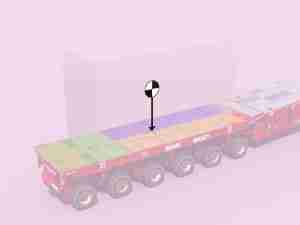ITF’s International Transport Action Week Begins Monday
posted by AJOT | Oct 05 2014 at 01:05 PM | Intermodal
Hundreds of thousands of transport workers worldwide will join together from Monday as part of an international action week organised by the ITF (International Transport Workers’ Federation). During the action week (6 to 12 October), road transport and railway unions will take action to highlight issues of local and national concern, such as deregulation, outsourcing, promotion of public transport, decent working conditions, safety issues, HIV/AIDS, driver fatigue, enforcement of labour laws. They will stand up for workers’ rights and emphasise the importance of being a member of a union.
This year workers in those sectors will be joined by their docker and seafarer colleagues on 9 October in a day dedicated to the safety of containers, which are handled and transported by drivers, dockers, train staff and seafarers. The week will also include activities around the World Day for Decent Work on 7 October and against the Uber taxi app on 8 Oct.
Among the countries where actions are planned are Australia, Barbados, Belgium, Benin, Botswana, Burkina Faso, Cameroon, Canada, Colombia, Congo, Costa Rica, Democratic Republic of the Congo, Egypt, Georgia, Germany, Ghana, Guinea Conakry, India, Ivory Coast, Japan, Kenya, Korea, Lithuania, Luxembourg (where a demonstration will be held on 8 October organised by the European Transport Workers’ Federation), Malaysia, Mexico, Niger, Nigeria, Philippines, Russia, Rwanda, Senegal, Spain, Tanzania, Togo, Thailand, The Netherlands, Turkey, Uganda, UK, USA and Zimbabwe.
Mac Urata, ITF inland transport section secretary, commented: “This action week allows transport workers and their national unions to focus on the areas most important to them while speaking with one united, global voice. Deregulation, privatisation and liberalisation have dramatically changed the road and rail industries in recent decades – usually for the worse for transport workers and the travelling public alike. Public transport, for example, is under threat as never before. Together during the action week we will defend these vital services and the jobs, working conditions and rights of those who work in them.”









